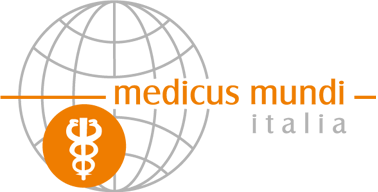MAPPA-en
Awesome Stories
Upcoming Events
Brazil

STATO DEL MARANHÃO
Bairro Cidade Olimpica, Area metropolitana di São Luís
On the outskirts of São Luis, the capital of the State of Maranhão, there are still many difficulties in accessing basic health services. In the bairro of Cidade Olìmpica, 13% of the 96,000 inhabitants live in absolute poverty, and almost 58% have a per capita income of less than or equal to half the minimum wage (USD 9 per day). Since the outbreak of the pandemic, social and health problems have worsened, and Brazil now ranks second in the number of deaths.
From a health point of view, the outskirts of the city of São Luís host the Unidades Básica de Saúde (UBS), public primary health care facilities where it is possible to receive free care in pediatrics, gynecology, general medicine, nursing, and dentistry, as well as laboratory tests, vaccines, and obtain basic medicines.
Within the UBSs, the Equipes de Saúde da Família (multi-professional teams dealing with health care and prevention in families) operate, with a total number of patients ranging between 2,400 and 4,000 per team. However, these units are unable to offer adequate coverage to the most remote and poorest communities, which are forced to use services offered in other areas of the municipality when they can.
In this context, Medicus Mundi Italia is working with local authorities to strengthen primary health care services for the most vulnerable populations by helping to train community health workers, carrying out hygiene and health awareness activities, prevention and containment of the COVID-19 epidemic, and other services that BHUs are unable to guarantee, such as home visits for particularly vulnerable people. They also refer the most critical patients to public facilities when necessary.
MEDICUS MUNDI ITALIA ACTIVITIES
- Training community agents of the Equipes de Saúde de Família in areas such as obstetrics and gynecology, neonatal pathology, vaccination programs, nutritional support, hypertension, respiratory and gastrointestinal diseases, infectious and sexually transmitted diseases, personal and community hygiene, and first aid knowledge.
- Conducting clinical home visits for the most vulnerable people suffering from COVID-19, providing care to children aged 0-6 years to fight against viral diseases, malnutrition, and anemia; offering preventive services to women of childbearing age for hypertension-related diseases and breast and cervical cancer; and attending to elderly people with hypertension and diabetes.
- Disseminating health information and raising awareness among community leaders and families.
- Addressing topics related to preventing the spread of COVID-19 during each training session
©Medicus Mundi Italia - All rights reserved | Privacy Policy - Cookies Policy | Whistleblowing


